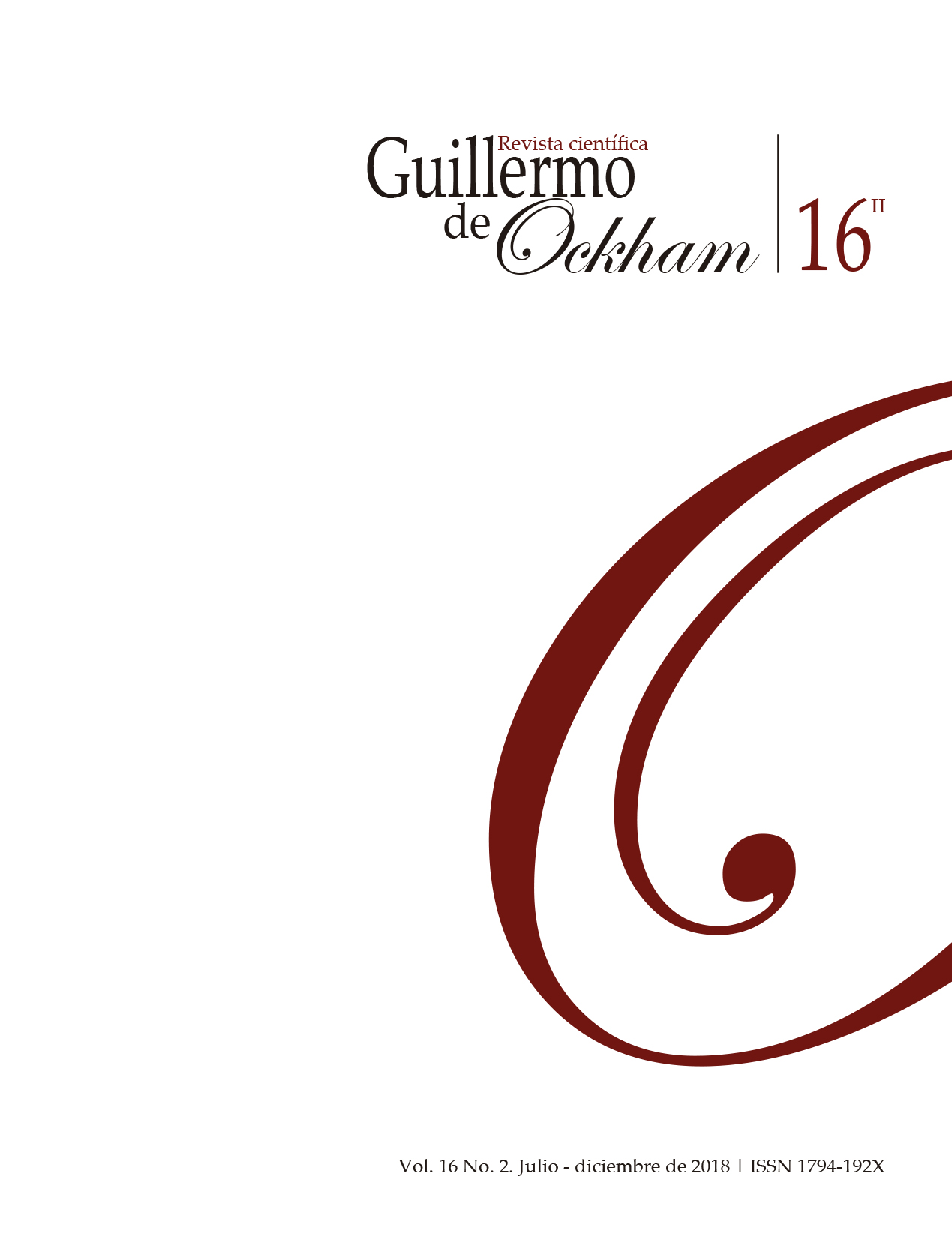The Revista Guillermo de Ockham provides an immediate and open access to its content, based on the principle of offering the public a free access to investigations to provide a global interchange of knowledge.
Unless otherwise established, the contents of this journal has a license with Creative Commons Attribution-NonCommercial-NoDerivatives 4.0 International (CC BY-NC-ND 4.0) http://creativecommons.org/licenses/by-nc-nd/4.0/
- Attribution: You must give appropriate credit, provide a link to the license, and indicate if changes were made. You may do so in any reasonable manner, but not in any way that suggests the licensor endorses you or your use.
- NonCommercial: You may not use the material for commercial purposes.
- NoDerivatives: If you remix, transform, or build upon the material, you may not distribute the modified material.
- No additional restrictions: You may not apply legal terms or technological measures that legally restrict others from doing anything the license permits.
Abstract
El auge de los discursos del reconocimiento de las diferencias sexuales, étnicas, generacionales y culturales, ha supuesto un reto grande en el diseño e implementación de políticas públicas y sociales, que otrora se regían por una idea de población beneficiaria homogénea en sus características y necesidades. El presente artículo, a partir del estudio de los documentos de la CEPAL sobre jóvenes y los Planes de Desarrollo del Municipio de Palmira (Valle del Cauca-Colombia), describe las tensiones discursivas (reconocimiento paradójico) que se suceden a la hora de llevar a cabo la gestión de estas políticas.
































